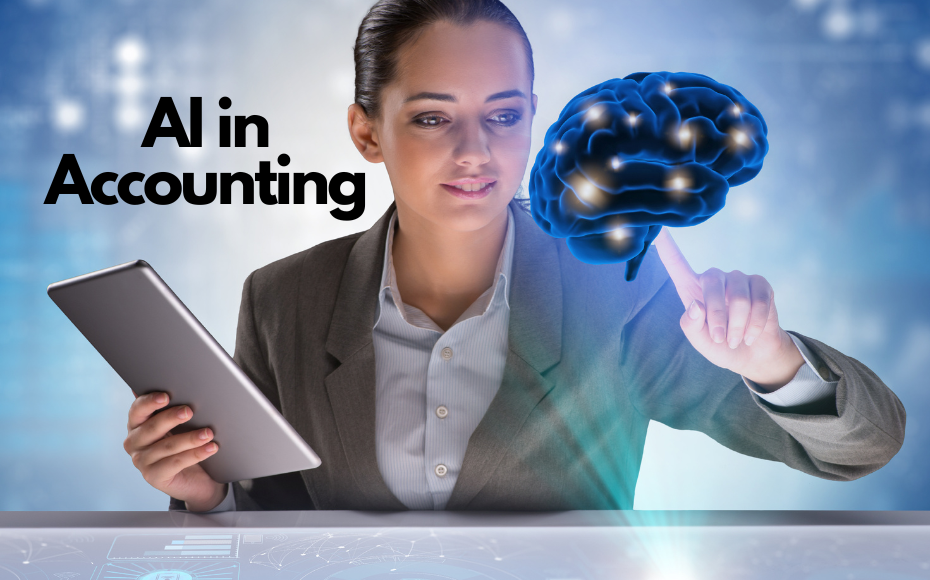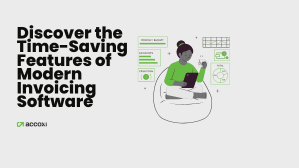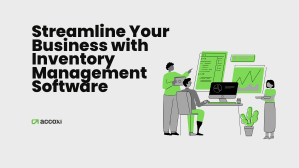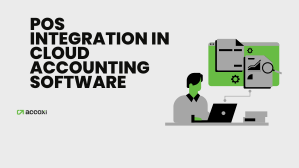

August 22, 2023

Systems with artificial intelligence have great potential and are developing swiftly. They produce results that, in some situations, vastly outperform human efforts and can be exceedingly accurate. They do not, however, mimic human intelligence. The best ways for people and computers to collaborate need to be understood, along with the strengths and limitations of this unique sort of intelligence.
Despite the fact that machine learning techniques are not new and that change is occurring quickly, business and accounting have not yet widely adopted artificial intelligence. We must gain a thorough understanding of how artificial intelligence may resolve accounting and business problems, the practical difficulties, and the abilities accountants will need to work with intelligent systems if we are to create a constructive vision for the future.
AI's ability to find patterns in huge data sets in a way that no human can is one of its key benefits. This is one of the main explanations for why AI is crucial in audit. AI gives auditors the ability to quickly evaluate big data sets for anomalies and patterns.
Workers could do a variety of repetitive tasks in between 80 and 90% less time using automation. reducing human error also raises the caliber of the output. Nearly all accounting tasks, including payroll, tax, banking, and audits, have been automated by AI, upending the accounting industry and resulting in a huge change in how business is performed.
AI improves output quality and productivity while also enhancing transparency and audibility. The financial team may investigate more possible areas for corporate growth because of AI's vast variety of options and reduction in the time-consuming chores they were previously required to complete.
Accurate financial statement forecasting is made easier by AI. Finance experts can forecast future trends using machine learning (ML) and past records.
Accounting software with artificial intelligence (AI) can help you save money by automating bookkeeping procedures, intelligent reporting, documentation, and data categorization.
Artificial intelligence (AI) can free up employees' time to concentrate on more strategic and creative duties by automating monotonous jobs and optimizing corporate procedures. For cost accountants to completely benefit from AI, they should follow a number of best practices that ensure quality, effectiveness, and ethics. Artificial intelligence (AI) tools alone can boost sales by increasing forecast accuracy and enabling real-time decisions.
For Chartered Professional Accountants, the payable and receivable process can be streamlined with AI-enabled invoice management systems, making it more accurate and efficient. Accounting managers will find it simpler to handle the payable and receivable accounts when using AI-enabled invoice management software, which can automate the invoice processing process using a digital workflow. In order to help with decision-making, AI algorithms can evaluate enormous volumes of data, spot patterns and trends in payable and receivable accounts, and more. This can help organizations make well-informed financial decisions, such as reducing past-due payments and improving cash flow.
Similar to how it has in every other industry, artificial intelligence has a significant impact on the world of accounting and finance. Software for accounting has recently started to include artificial intelligence. Similar to how technology has affected every other area, it is having a significant impact on the accounting and financial sectors.
AI can now complete accounting tasks faster and more accurately than they could in the past, which used to take hours or days. Finance experts and their businesses would benefit from AI in accounting and finance solutions to stay motivated. Additionally, it attracts the next wave of clients and workers. because it provides insights while also saving time and money.
Data entry, account reconciliation, and report preparation can all be replaced by artificial intelligence (AI), freeing up accountants to focus on consulting, analysis, and business partnerships while also gaining broader business expertise. Natural language processing can quickly and accurately extract data from unstructured text documents and feed it into accounting systems. The industry may leverage the natural knowledge accumulated over time to design and develop programs that minimize risk and foster real-time insight and efficiency in addition to the time savings provided by AI functionality.
While AI is capable of processing enormous amounts of data quickly, it lacks the critical thinking and decision-making skills that are taught to human accountants. Accounting professionals that embrace AI will prosper as long as human abilities are still necessary to overcome bias in data.
Data from several sources can be combined and merged using AI algorithms, eliminating the need for manual data entry and lowering the likelihood of human error. Because of the shorter quarterly and monthly closure processes that emerge from this, businesses have more time to formulate strategies based on financial data.
Prior to the development of technology, accounting procedures were largely manual and time- and resource-intensive to accomplish. Manual data entry and repetitious chores were hallmarks of traditional accounting systems, which were also prone to human mistake. The field of accounting has seen a significant transformation as a result of the incorporation of digital technologies.
The security and accuracy of audits have been greatly improved by the incorporation of AI in the accounting and finance industry. Financial transactions may be tracked, monitored, and any anomalies or inconsistencies can be found using AI algorithms and technology. This lowers the possibility of financial fraud while also guaranteeing the accuracy and effectiveness of audits. For instance, auditors no longer need to trawl through physical file cabinets in search of paperwork because they can readily access and monitor digital files and data. This increases the audit's effectiveness and makes it easier for auditors to spot any problems or areas that need more research.
Accounting and finance companies can enable their accountants to concentrate on more strategic decision-making activities by automating back-end procedures. It alludes to the automation and streamlining of accounting and financial procedures through the use of AI and machine learning technologies. With invisible accounting, repetitive, low-value operations like data entry, reconciliation, and auditing are carried out by algorithms, freeing accountants from these duties. The main benefit of this strategy is that it does away with the risk of human error, guaranteeing accurate and precise completion of accounting and financial operations. Accounting managers and leaders can have real-time access to their financials with AI, ensuring accuracy and faultless outcomes.
As technology advances, there are more tools and systems for accounting available than ever before. The potential benefits of AI include significant cost savings, enhanced productivity, and better data accuracy. Additionally, it can eliminate time-consuming, monotonous manual accounting tasks.
Switch to Accoxi if you're seeking for a simple, affordable accounting method.


